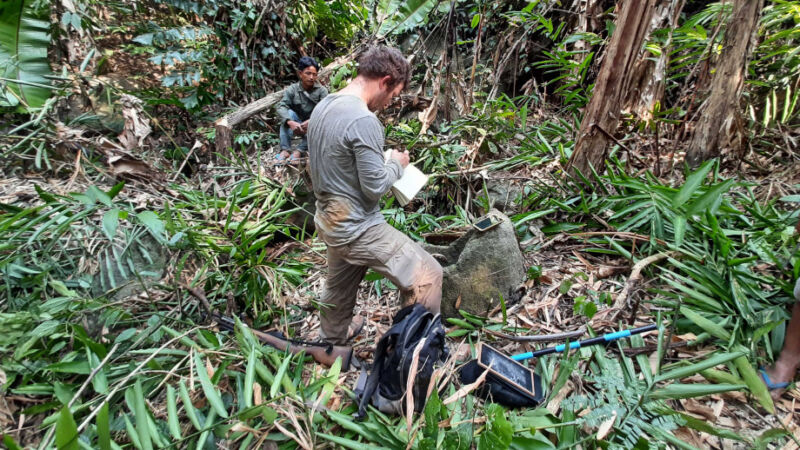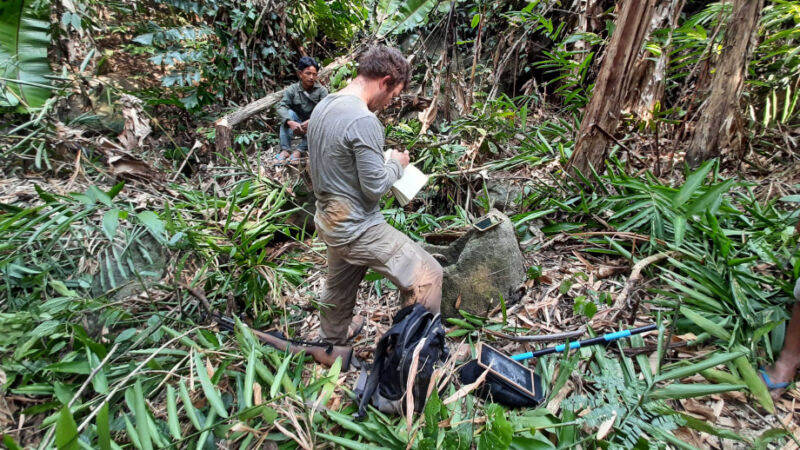
Enlarge (credit: Nicholas Skopal)
Hundreds of huge stone jars lie partially buried on hillsides and ridges in northeastern India. A recent survey found 65 jars at four previously undocumented sites, and the survey’s leaders say there are probably many more sites still hidden in the area’s mountainous forests. The jars are part of a whole landscape of megaliths carved by an ancient Indian culture which—so far—archaeologists know little about.
Enormous burial urns
Sometime in India’s ancient past, people carved giant jars, some up to two meters wide and three meters tall, from solid sandstone blocks. They transported the jars to hillsides and ridges and lined them up carefully, with a good view of the lowlands. Today, hundreds of those jars are in various states of disrepair, spread across a 300 square kilometer swath of Assam, a state in northeast India.
Archaeologists say the jars are probably massive burial urns, but almost nothing is known about the people who made them. It’s not even clear exactly how old the jars are, because the types of dating that could provide that information haven’t been done yet. “We still don’t know who made the giant jars or where they lived,” said Australian National University archaeologist Nicholas Skopal, a co-author of the recent paper, in a statement. “It seems as though there aren’t any living ethnic groups in India associated with the jars.”





